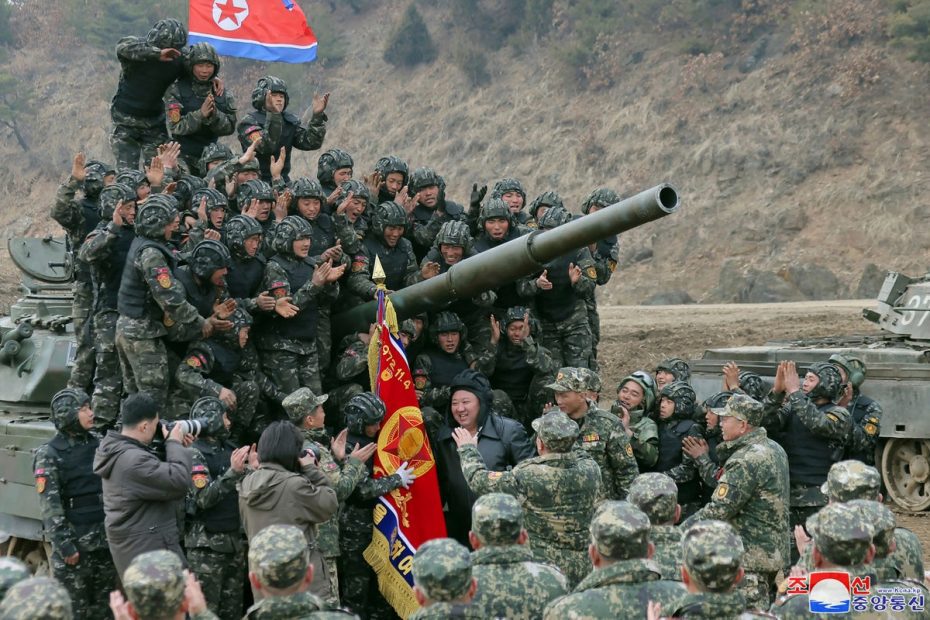The G7, which includes some of the world's richest countries, has made it clear that they believe reports of thousands of North Korean troops being used to reinforce Russian forces in Ukraine show Vladimir Putin's “desperation” to to compensate for the losses on the front line.
Putin's forces are believed to be losing hundreds of troops a day, while Ukrainian estimates are as high as 1,200 to 1,500, so the more than 10,000 troops South Korea thinks it has in Russia would last about two works at that rate.
“In general, even 12,000 soldiers do not have a significant impact on the overall situation of the war,” said Emil Kastehelmi, who heads the Black Bird Group, which monitors the war in Ukraine.
According to Kiev, the troops are already under fire and shelling in the Russian border region of Kursk. That is the area that Ukrainian forces control after launching a daring attack in August.
“The first military units of the DPRK [Democratic People’s Republic of Korea] have already come under fire in Kursk,” Andriy Kovalenko, Ukraine’s top anti-disinformation official within the National Security Council, said on Telegram.
Questions have been raised about the caliber of North Korean troops, not least because none of the group, which consists of 500 officers and three generals, has any combat experience. North Korea's isolation on the international stage means its troops, which number well over a million, face nothing but training.
“No one would think they are going to Russia to die,” Choi Jung-hoon, a former first lieutenant in the North Korean army, told the newspaper. Associated press. “But I think they are cannon fodder because they will be sent to the most dangerous locations and will certainly be killed.”
Ukraine's military intelligence agency, the GUR, said this weekend that North Korean forces were armed with extensive hardware, including mortar shells, anti-tank guided missiles and rocket launchers, as well as sniper rifles and machine guns. But it will be uncharted territory, as much of North Korea's training takes place in the mountains, rather than on the flat battlefields of Ukraine.
US Secretary of State Anthony Blinken, meanwhile, said Russia has trained North Korean forces in the use of artillery and drones, as well as “basic infantry operations, including trench clearance.” He added that this indicated that Moscow plans to use these forces in front-line operations.
But inexperience and a language barrier will likely prove prohibitive. Mr Kastehelmi says it will be of utmost importance that good liaison officers and translators are deployed to the troops, otherwise communication risks becoming fatal on the battlefield.
“The final organizational structure is an important factor for effectiveness, and also determines how troops will be integrated into Russian operations,” Kastehelmi said.
In addition, the age and health of the troops could prove problematic.
While the details of who deployed are unknown, experts believe the troops are largely in their late teens and early twenties. “My heart hurt,” said Choi, now leader of an activist group in Seoul, when he saw a video released by Ukraine showing undersized young North Korean soldiers.
In addition, South Korean researchers have previously found that there have been significant cases of chronic hepatitis B and C, tuberculosis and parasites among North Korean defectors, some of whom came from the military.
When a North Korean soldier escaped in 2017, South Korean doctors who rescued him found a 27-centimeter intestinal worm and numerous parasites in his system. His stomach contents also reflected a poor diet.
The group sent to Russia also includes members of the Storm Corps, an elite unit better trained and nourished than most of their comrades, but former defectors from that unit remain skeptical that age will not prove an issue.
Ultimately, says John Foreman, a former British defense attache in Moscow between 2019 and 2022 who specialized in analyzing the Korean Peninsula, the deployment is unlikely to have a major impact.
He said it is nothing more than a “payday loan,” the kind that could solve the short-term problem of troop shortages at the expense of frontline cohesion.

